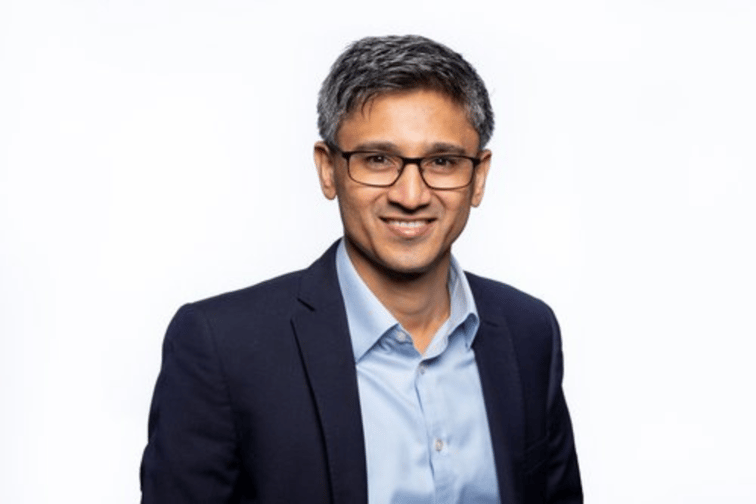

It was ex-CEO of Microsoft, Satya Nadella who contested that “every business will become a software business” and CEO of Charles Taylor InsureTech Arjun Ramdas (pictured) is seeing first-hand how this prediction is playing out across the insurance ecosystem.
In the three years since Ramdas joined the insurtech division from Microsoft - where he served as practice leader of its UK consulting services – he has seen it progress rapidly, growing its team, doubling its revenue and maximising its profits. Coming from a tech-focused background, he said, it’s been rewarding to join a company with such deep roots in the insurance sector which boasts such a wealth of insurance expertise.
“Not being an insurance expert, it’s been fantastic knowing I can rely on the experts around me and I rely on them every day,” he said. “And it has been fun because insurance is going through a huge transformation right now with regards to how front-to-back digital transformation is driving change. But at the same time as an industry, insurance tends to be more risk-averse, and it has a slower pace of change compared to some of the other sectors I’ve worked with.”
Several factors are at play behind the scenes of this, among them the challenge inherent with insurance companies’ reliance on scaling up through acquisitive growth. There’s a lot of M&A in the insurance industry, he said, but it can come at the price of fragmenting a company’s operating model and the technology that enables that.
A behind-the-scenes comparison of a company that has grown organically versus one that has grown inorganically reveals this fragmentation with the former displaying greater consistency in terms of technology and tooling. There are examples of insurance players that have grown through organic growth, he said, but at a certain size or scale, even these will look to scoop up smaller companies in order to get to the next level.
“That creates a microcosm of cultures and technology internally,” he said. “And we see first-hand the battle that insurance leaders have in creating a consistent operating model, culture and technology platform. They don’t like it being this way and they do want to make changes but the cost of change is a two-fold consideration – they’ve got to consider the spending side but also the culture and mindset side.”
For the team at Charles Taylor InsureTech, it’s clear that neither consideration can be taken in isolation. If a change programme is going to work it needs to work across the board. That is why a one-size-fits-all approach doesn’t work when it comes to modernisation and digitisation programmes, he said, because different companies have different appetites, resources and requirements. With that in mind, there are four key tranches to the business’s offering.
The first part of its solution set is aimed at digital transformation. These are major change programmes which drive significant change to a company’s operating model and the way they work with their distribution partners, capacity providers etc. These “open heart surgery” solutions involve double-digit million-pound budgets and tend to take between two-and-a-half to four years, he said, depending on the size, scale, complexity and lines of business involved.
“Then there’s the second wave, which is what we call digital modernisation,” he said. “This is where we’re seeing clients who don’t want to spend the money required to rip apart their entire system but they want to glue things together within these systems in a better way. They want to offer a better customer or partner or channel experience, depending on what part of the market they play in.
“They want a better experience on that front-to-mid-office space but they don’t want to change their mid-to-back-office side too much, perhaps because that’s a problem deemed too hot to touch or perhaps because that change will see too little return for the risk involved. For us, we have solutions to help these customers find ways to deliver a great digital experience without changing the whole plumbing.”
The third area of expertise for the business is around supporting smaller players in the market by essentially running their entire technology operation, from their phones and laptops through to the cloud. This is especially attractive to smaller businesses that wouldn’t otherwise have access to such a broad range of mature technology capabilities. Finally, he said, the firm has specialist products aimed specifically at the London market – in appreciation of London as “the birthplace and insurance capital of the world”.
It's a fascinating time to be supporting insurance businesses’ innovation appetites amid such volatile market conditions, he said. He’s seeing first-hand how leaders are balancing their reticence to embark on change programmes amid these conditions with the recognition that they need to make these changes to stay ahead of the curve and to position themselves for future growth.
From his time in the insurance market, Ramdas noted that he has gained a true appreciation for the critical role insurance has to play in supporting economies, communities and industry. Insurance makes up about 3% of the world’s economy, he said, but it is what allows a small business to punch above its weight and deliver something new. By transferring the risk that would otherwise weigh down individuals or small businesses, insurance allows ideas to flourish.
“I look at insurance as grease in the world’s economy,” he said. “It allows people to take risks knowing that they have protection which is what allows us to move forward. That safety net is what allows the whole human species to evolve and if insurance wasn’t there, the whole piece would seize up. So, it’s important to remember the key role insurance in itself plays in terms of how the future plays out and it’s important to us that we do all we can to support that role.”
What are your thoughts on this story? Feel free to share them in the comment box below.
